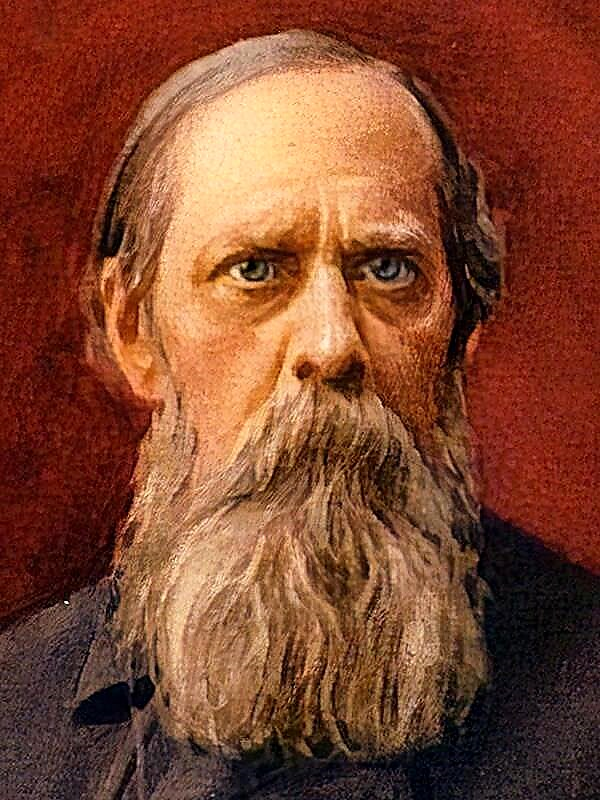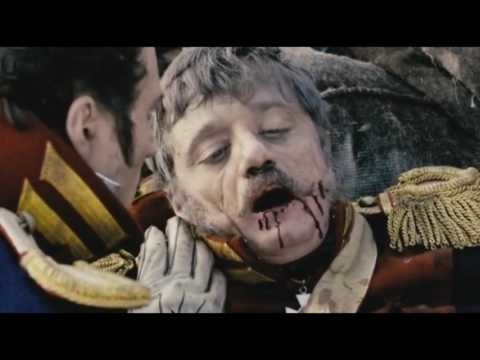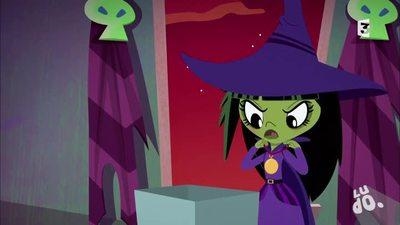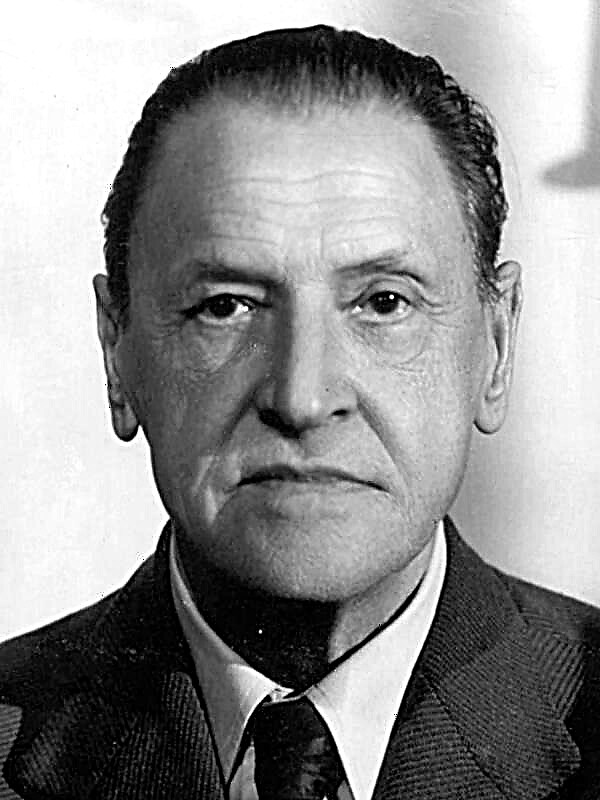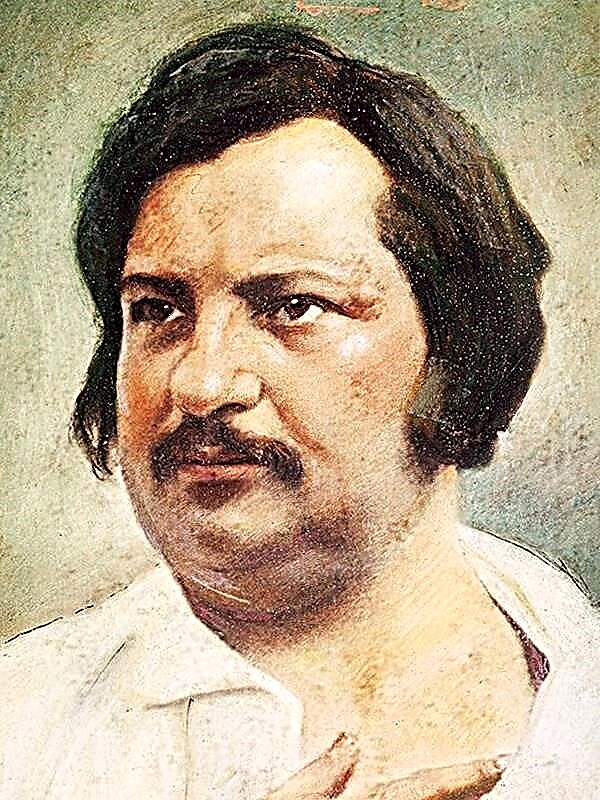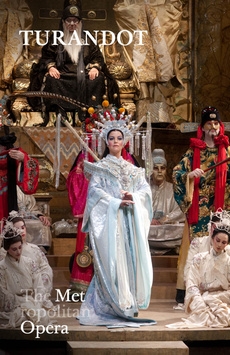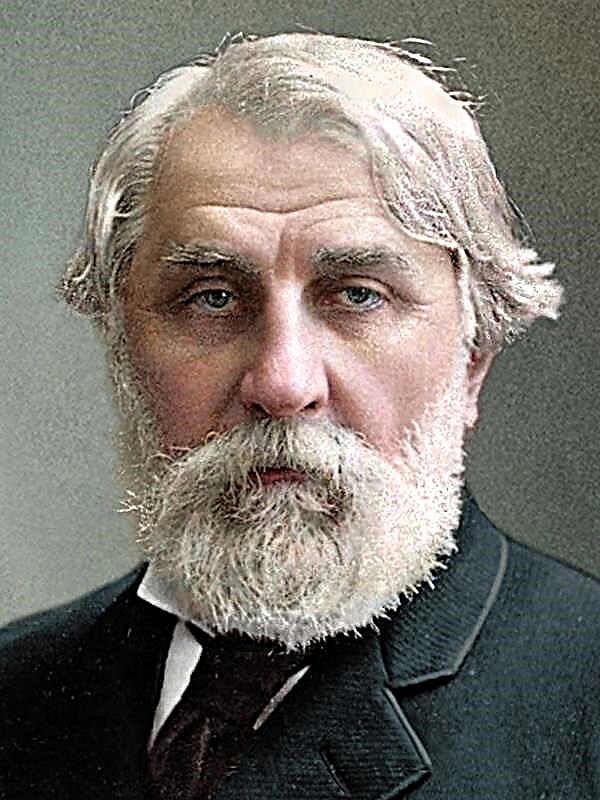In the prose prologue to the poem, the author notes that he describes those ancient times when pagan Lithuanians fought with their main enemy - the Teutonic Order, which conquered Prussia.
1391 Knights come to Marienburg to elect the head of the order. More often than others they pronounce here the name of Wallenrod - a stranger who, with his exploits, glorified the order throughout Europe. "Not only with formidable military courage, he magnified the title of crusader: but, despising the blessings of life, he ascended in Christian valor." This knight “did not sell his weapons and honor to the warring barons. In the monastery, without touching the temptations, shying away from the light, he spends youth: he is alien to the sonorous laughter of beauties, and sweet-minded songs of minstrels. ”
This man, not old for years, but gloomy, gray and pale, has a single friend - the holy monk Halban, his ever-present confessor.
Sometimes Conrad sings a song in an unknown language, and in the eyes of the knight there are tears, and the spirit flies away to the edge of memories. And there is no fun or hope in this song ... And the young recluse lives in the castle tower. About ten years ago she came from nowhere to Marienburg and “voluntarily entered the tower. / Now from the high window the recluse calls out: / “Konrad! <...> Having become a master, your duty is to destroy them! ”
Knights, hearing these words in an unfamiliar language, understand only the name "Conrad". This is "heaven indicated," proclaims Halban, and Conrad is elected the great master.
Everyone hopes that Wallenrod will soon conquer Lithuania. But he “boldly violates the custom of the ancestors”: he urges the knights to abandon military glory and wealth. “May virtue be our glory!” And near the walls of the castle there are already litvins. Conrad, however, goes to the tower at night and speaks quietly with the recluse. She sings, as she was converted, the beautiful pagan, a Christian knight in her faith and carried away to a foreign country. Conrad suffers: why did the unfortunate follow him ?! But she, shocked by Conrad’s bold plan, “appeared secretly in a German castle and, / having defeated their German camp with revenge / / to pay for the sorrows of the people”, wanted to be near her beloved. Wallenrod reproaches the recluse: once he, bitterly crying, broke up with her - and with his happiness - "for the plans of the bloody and rebellious." And now, when he is finally ready to take revenge on the "sworn enemies", her appearance has undermined his strength. Halban showered Conrad with rebuke. Wallenrod must go on a hike, but he cannot leave his beloved.
Konrad feasts with Vitold, who, fighting for power in Lithuania, came to ask for help from the order. Old Litvin sings a song, shameful of traitors who have crossed over to the Germans. Ashamed, Vitold "closed his cloak and plunged into black thought." The old man, however, talks about a young Litvin, whom the Germans captured as a child, named Walter Alf, and made him a crusader. Grand Master Vinrich loved him as his own son. But in the Lithuanian heart lurked for homesickness, hatred for the Germans. The young man agrees with the old singer-Litvin; he tells the orphan about the homeland and incites hatred in her to her enemies. The old man tells the young man: “Remain with the Germans, / learn military business from them / and enter them in trust ...” But in the very first battle with the Litvins, the young man rushes to his fellow tribesmen and tells his story to Prince Keistut and his daughter, “divinely young "Aldone. Soon, young people fall in love with each other, and the prince marries them. But Walter "a noble soul was not happy in the family, / since there was no happiness in the homeland." The Germans are advancing, and Walter is afraid that they will capture all of Lithuania. Having freed Aldona from the marriage vow, he secretly goes to the Germans to destroy the order from the inside.
After the feast, Vitold cheated on the German allies (it seems that the old man’s songs did their job; they suspect that he was disguised as Halban). Vitold's people smash German castles. Konrad is forced to lead the crusaders craving revenge to Lithuania. He returns in winter with the remains of a broken army. The famous commander Wallenrod killed this time his entire army. The face of the great master is grim, but his eyes shine.
The secret council of the order gathers in the dungeon. One of the twelve masked judges claims that Earl Wallenrod once went to Palestine and soon disappeared, and a certain knight from his retinue, arriving in Spain, called himself the name of his master, whom he apparently killed. Having become famous in Spain, where he bravely smashed the Moors, the impostor appeared in Marienburg. Twelve black judges unanimously pass the death penalty on the traitor.
The sworn Alf hurries to Aldona. He no longer wants to take revenge - “Germans are people too” - and calls his beloved to Lithuania to start life anew. But late! Aged Aldona does not dare to show her husband's eyes. Soon, Alf hears behind him a cry: “Woe, woe, woe!” So the Privy Council calls on the condemned to prepare for death. Alf says goodbye to Aldona. At night, the killers burst into his peace, and the knight drains the cup of poison. And the old Halban remains to live, to tell everyone about the heroic deed. “I destroyed the hydra with one blow to the head!” - Alf proudly says the knights bursting into him and dies. Seeing that a lamp went out in his window, with a cry he falls dead in his tower of Aldon.
In “Explanations,” Miscavige notes that the real Wallenrod really put the order on the brink of death and himself died under very mysterious circumstances. Was he not that German knight Walter von Stadion, who, having been captured by the Lithuanians, married Keistut's daughter and secretly left her from Lithuania?

